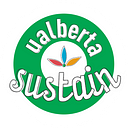
Can hunting and local harvest solve the dietary crisis in Northern Indigenous communities?
Michael Robidoux works directly with Dene and Métis communities to strengthen food security
By Olivia DeBourcier
I remember the first time I heard about food prices in Canada’s far north. I was scrolling through Facebook and saw a CBC News article showing a 4 L jug of milk for $12. I couldn’t believe the cost difference between that and my local grocery store where milk was nearly a third of the price.
Food costs are a major issue for northern rural communities who pay, on average, twice as much for food as Southern communities. In places where incomes are lower and unemployment rates higher, the impact of food costs are exacerbated.
Food security in Canada’s north is a topic Michael Robidoux has spent years working to understand. He is the director and associate dean of the School of Human Kinetics at the University of Ottawa and has been the leader of the Indigenous Health Research Group for the past fifteen years.
“It was super fun fieldwork for five years”
Interestingly, Robidoux didn’t get into food security research right off the bat. For many years he studied Canada’s favourite pastime — hockey! More specifically, the closed labour culture of professional hockey teams. It was through this work that he ended up being invited to play and study hockey in First Nations communities.
“It was super fun fieldwork for five years,” Robidoux said. And whenever he entered a community, especially up North, he was immediately invited out onto the land. “We would go hunting and fishing. I was quickly learning how important the food is and how it’s so central to community life.”
For this reason, food came to play a major part in the Indigenous Health Research Group’s work. In addition to Robidoux’s focus on food cultures, the IHRG is composed of nutrition and physiology scientists. They’ve been working in partnership with Dene and Métis communities in the Northwest Territories to understand how much traditional food sources like hunting, fishing and plant harvesting affect the food security of northern communities.
Supply vs. demand
When Robidoux looked at the results, he saw that these food sources were nutritionally and culturally very important. But he also saw that “the access issue is such a problem — it’s so difficult, it’s so expensive to get onto the land to acquire enough food.”
The problem is that these Indigenous groups have historically been semi-nomadic. Their diets are predicated on an ability to follow food sources, such as caribou and moose. With colonization, communities were forced into a sedentary lifestyle which depleted food resources in a concentrated area around the settlement and required community members to travel further and further for land-based food.
“It really is a fraction of what their actual energy requirements are”
Robidoux hopes the knowledge to come out of the research group might inform the federal government’s policies on reducing food insecurity in these communities. In Robidoux’s view, the policies he has seen in development overemphasize the potential for land-based foods to meet community nutrition requirements.
“It’s a bit discouraging, because [the amount of land-based foods] is a fraction of what the actual energy requirements are. People need to have a more realistic sense of what potential impact land-based foods have for food security,” he said.
Robidoux wants to put a spotlight on the true need for food subsidies might ensure that the government doesn’t underestimate the funding requirements for these policies to improve food security.
While Robidoux’s research shows that land-based foods may not be enough to solve food insecurity, subsistence harvest is of critical cultural importance and can provide much healthier foods than can be bought in a grocery store.
“Even if [land-based foods are] 7.5% of dietary intake, it’s still better than 7.5% intake of the very low quality, energy-dense food from the store.”
The Indigenous Health Research Group has also been working with communities to help build their local food systems to support sustainable local food initiatives. Among these initiatives include supporting already successful food markets and investing in potential food microeconomies like wild rice and greenhouse-grown food.
To learn more about Michael Robidoux’s novel research into Indigenous food security, tune in to the next Sustainability Council lecture:
Wednesday, Dec. 16, 2020 at Noon, live on Eventbrite.
Register for free at: https://www.ualberta.ca/sustainability/events/lectures/index.html
